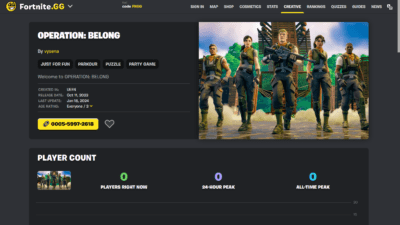FUTURE ARMY 2020: Defence Committee increases pressure to MoD to raise enlistment age to 18
Child Soldiers International press release
The Defence Select Committee has increased the pressure on the MoD to stop enlisting minors, in a report published today.
The report, which follows a major inquiry into the MoD’s Future Army 2020 plan, called on the MoD “to respond in detail to the argument that the Army could phase out the recruitment of minors without detriment to the Army 2020 plans”.
The Future Army 2020 report highlighted evidence presented by campaign groups Child Soldiers International and ForcesWatch that raising the enlistment age to 18 would save around £94 million per year on training costs and increase the Army’s operational effectiveness.
The Committee’s challenge over enlistment age comes just a few months after church groups across the UK, including the Church of Scotland and the Bishops of the Church in Wales, wrote to the Minister for the Armed Forces calling for the enlistment age to be raised to 18. Recent research has shown that those who enlist below this age are at higher risk of injury in training, suicide, bullying, sexual harassment, mental illness, alcoholism, long-term unemployment, and violent offending than recruits who enlist as adults.
Following the Defence Committee’s previous challenge over the recruitment of minors in its report on the Education of Service Personnel last year, the MoD instructed the Army to conduct a cost-benefit analysis of the policy. Today’s report complained about the slow progress of this study, the lack of clarity over its terms of reference, and questioned how its findings would be independently verified.
“Once again, the MoD is being given a clear message that it needs to revise the minimum enlistment age. The Defence Committee, despite its concerns about current armed forces personnel figures, disputes the necessity and desirability of enlisting minors”, said Richard Clarke, Director of Child Soldiers International.
“Enlisting children is outdated and unnecessary. Raising the enlistment age to 18 is a simple and essential part of modernising the Army personnel structure for the 21st century.”
Notes to Editors
1. Child Soldiers International is an international human rights research and advocacy organisation seeking to end the military recruitment and the use in hostilities, in any capacity, of any person under the age of 18. www.child-soldiers.org.
2. The longer duration of training for minors and their greater likelihood of dropping out makes recruiting them extremely costly to the taxpayer. In 2010-11 the annual cost was approximately £94 million more than if only adults were recruited. i
3. In 2012 just 880 16-year-olds enlisted in the Army, 40% fewer than the year before (1,470) and just a quarter of the number enlisted a decade earlier (3,600).ii The Navy and RAF now barely recruit any 16-year-olds – just 30 between them in 2012.iii The number of 17-year-olds has also fallen steadily, with about a third as many joining the forces in 2012 (1,550) as were enlisted a decade earlier (5,035).iv
4. The dramatic fall in intake has been matched by rising drop-out rates. Of all the 16-year-olds recruited by the Army in 2012, nearly half (410) left during training.v
5. Non-officer armed forces recruits enlisting in Scotland and Wales in the year 2011/2012 were, on average, six months younger than those enlisting in England.vi Secondary schools and colleges in Scotland and Wales also received disproportionately high numbers of visits from armed forces compared to their equivalents in England.vii
6. The UK has the joint lowest legal enlistment age in the world and is the only state in the European Union and the only Permanent Member of the United Nations Security Council still enlisting 16 year olds. Fewer than 20 countries worldwide have a recruitment age of 16 or below.
7. An independent nationwide poll in 2013 found that 70 per cent of respondents who expressed a view thought the recruitment age should be raised to 18 or above.viii
References
i Child Soldiers International and ForcesWatch. (2013). ‘One Step Forward: The case for ending recruitment of minors by the British armed forces’ (London: CSI/ForcesWatch). Available online at http://www.child-soldiers.org/user_uploads/pdf/onestepforward23april2013final8658818.pdf
ii Defence Analytical Services and Advice. (2012, 2013). ‘Annual Personnel Report’ [2012 and 2013 editions, Table 7] available online at http://www.dasa.mod.uk/index.php/publications/personnel/military/annual-personnel-report – accessed 27 October 2013; Defence Analytical Services and Advice. (2003). ‘TSP 19 – UK Regular Forces Intake and Outflow by Age Report’ [2002-03 edition, Table 1] available online at http://www.dasa.mod.uk/index.php/publications/personnel/military/archive/TSP-19-UK-regular-forces-intake-and-outflow-by-age – accessed 27 October 2013.
iii Defence Analytical Services and Advice. (2013). ‘Annual Personnel Report’ [Table 7] op. cit.
iv Defence Analytical Services and Advice. (2013). ‘Annual Personnel Report’ [Table 7] op. cit. and Defence Analytical Services and Advice. (2003). ‘TSP 19 – UK Regular Forces Intake and Outflow by Age Report’ [2002-03 edition, Table 1] op. cit.
v Hansard: HC Deb, 14 October 2013, c480W.
vi Data extrapolated from figures in Hansard: HC Deb, 6 March 2013, c1088W. Average age of armed forces (Other Ranks) recruits at enlistment were: England: 20 years and 11 months; Scotland: 20 years and 5 months; Wales: 20 years and 5 months; Northern Ireland: 21 years and 4 months.
vii Secondary schools and colleges in Scotland received 11.2% of all armed forces visits to schools (1,211 visits) in the UK in 2011/2012, despite Scotland comprising only 8.4% of the UK population; schools and colleges in Wales received 6.6% of armed forces visits (713 visits), whilst comprising just 4.8% of the UK population. Secondary schools and colleges in England received 78.1% of all armed forces visits to schools (8,449 visits), despite comprising 83.9% of the UK population. See Hansard: HC Deb, 15 April 2013, c56W, correlated with 2011 UK population census.
viii An ICM poll commissioned by Child Soldiers International in March 2013 found that 70% of respondents who expressed a view believed the minimum age to join the British Army should be 18 or above; only one in five believed it should be 16 or less. ICM interviewed a random sample of 2,018 adults in Great Britain between 28 March and 1 April 2013. Surveys were conducted across the country and the results were weighted to the profile of all adults. ICM is a member of the British Polling Council and abides by its rules. Full results of the poll available online at http://www.child-soldiers.org/research_report_reader.php?id=653.
See more: recruitment age, Child Soldiers International, ForcesWatch










